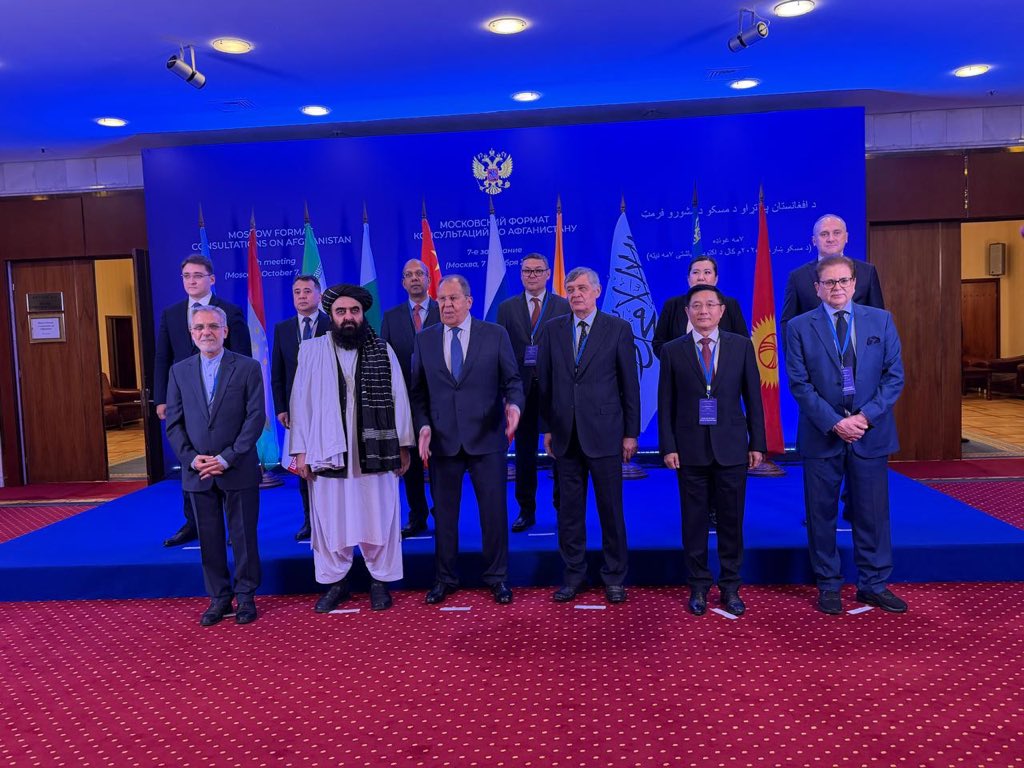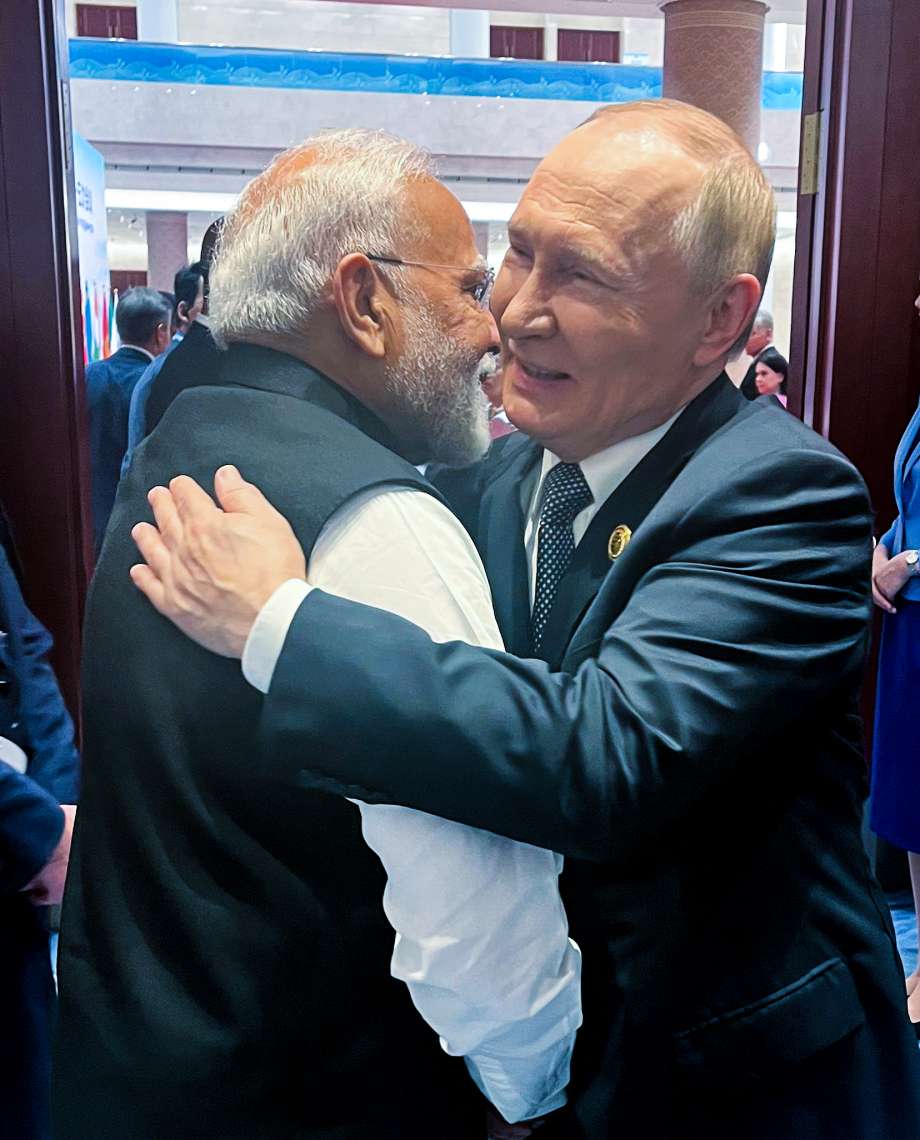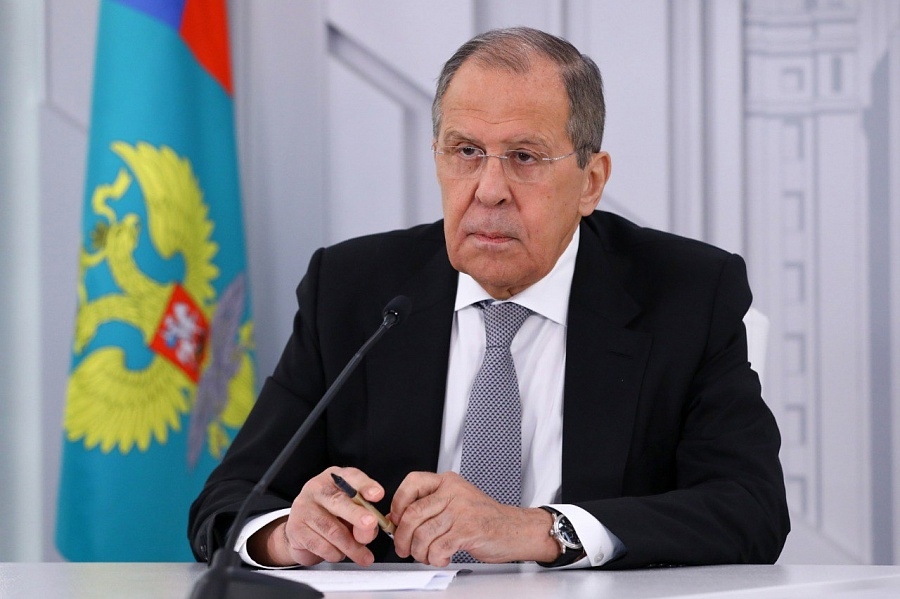Putin confirmed that deployment sites have already been selected within Belarus for the Oreshnik missile systems
President Vladimir Putin announced on Friday that Russia has begun production of its newest hypersonic intermediate-range ballistic missile, the Oreshnik, and plans to complete its deployment to Belarus by the end of the year. The announcement was made during a joint appearance with Belarusian President Alexander Lukashenko on Valaam Island, near St. Petersburg.
Putin confirmed that deployment sites have already been selected within Belarus for the Oreshnik missile systems. “Preparatory work is ongoing, and most likely we will be done with it before the year’s end,” he said, noting that the first batch of missiles has entered military service.
The Oreshnik — named after the Russian word for “hazelnut tree” — was first used in combat last November, when it was fired at a factory in Dnipro, Ukraine. The site, a remnant of Soviet-era missile production, marked the weapon’s operational debut.
Putin has praised the missile’s performance, highlighting its advanced capabilities. The Oreshnik can carry multiple warheads that descend on targets at speeds up to Mach 10, making them nearly impossible to intercept. According to Putin, a salvo of these missiles in a conventional strike could rival the impact of a nuclear attack.
The weapon’s range allows it to strike anywhere in Europe, with the potential to carry either conventional or nuclear warheads. Russia’s top missile commander has confirmed that the system was designed with both in mind. Intermediate-range missiles such as the Oreshnik — with ranges between 500 to 5,500 kilometers — were previously banned under the 1987 INF Treaty, which both the U.S. and Russia exited in 2019.
The announcement comes amid heightened tensions between Russia and NATO over the ongoing conflict in Ukraine. Putin warned that Western nations risk retaliation if they continue supplying Ukraine with long-range weapons used in attacks inside Russian territory. He hinted that the Oreshnik could be used in response.
The missile deployment also reflects the growing military integration between Moscow and Minsk. In late 2023, Putin and Lukashenko signed a treaty extending Russia’s nuclear umbrella to Belarus. The agreement allows for the use of Russian nuclear weapons to defend Belarus in the event of aggression and marks a significant shift in Moscow’s nuclear posture.
Under this pact, Belarus has already hosted Russian tactical nuclear weapons. While Moscow has not disclosed the exact number, Lukashenko claimed last December that his country possessed “several dozen.” The presence of such weapons gives Russia quicker launch capability toward Ukraine and also increases the threat level for NATO’s eastern flank.
Belarus shares a 1,084-kilometre border with Ukraine and lies adjacent to NATO members like Poland, Lithuania, and Latvia. By stationing hypersonic and nuclear-capable missiles in Belarus, Russia expands its military reach across much of Eastern and Central Europe.
Putin’s revised nuclear doctrine — formalized last fall — lowered the threshold for nuclear use. It permits deployment not only in response to nuclear or other weapons of mass destruction but also in the event of a conventional attack on Russia or Belarus that threatens their sovereignty or territorial integrity.
Lukashenko, a close Kremlin ally who has led Belarus for over three decades, continues to play a critical role in Moscow’s regional strategy. His decision to allow Russian troops and weapons into Belarusian territory has further tied his country to Russia’s military ambitions, especially in the context of the Ukraine war.
As production and deployment of the Oreshnik advance, and nuclear policy boundaries shift, analysts say Europe may face a renewed era of missile brinkmanship — reminiscent of Cold War posturing but with faster, more unpredictable technology at the core.














